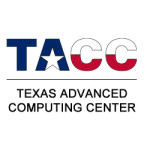Lonestar6, a Dell Technologies HPC system designed and deployed by the Texas Advanced Computing Center (TACC) at The University of Texas at Austin, is intended to perform about 3 quadrillion mathematical operations per second — or, in high-performance terminology, 3 petaflops. Lonestar6 is comprised of more than 800 Dell EMC PowerEdge C6525 servers with 3rd […]
TACC Adopts Intel oneAPI for Remote Visual Analysis
The Texas Advanced Computing Center (TACC) at The University of Texas at Austin reports it is using the Intel oneAPI Rendering Toolkit for remote analysis capabilities on the center’s supercomputers, “providing high-fidelity visualization tools for all scales of computing.” TACC, which operates the Frontera and Stampede2 supercomputer along with more than a dozen HPC systems, […]
TACC’s Stampede2 HPC Simulations Reveal How Cells Regulate Themselves
Supercomputer simulations run on the Stampede2 system of the Texas Advanced Computing Center (TACC) have helped scientists studying how cells work understand the way in which protein molecules in a sense dance with a partner to respond to signals and regulate each other’s activities. Crucial to giving cells energy for life is the migration of […]
TACC’s Longhorn GPU Subsystem Helps Researchers Detect Potential COVID-19 Virus Vulnerability
Despite more than a year and a half of research, there are still many unknowns about how the virus that causes COVID-19 infects human cells. A deeper understanding could lead to new treatment approaches. Using supercomputer simulations, a team from the University of California San Diego, the University of Pittsburgh, The University of Texas at […]
Univ. of Michigan Researchers Using TACC Frontera HPC for Space Weather Forecasting
“There are only two natural disasters that could impact the entire U.S.,” according to Gabor Toth, professor of Climate and Space Sciences and Engineering at the University of Michigan. “One is a pandemic and the other is an extreme space weather event.” We’re currently seeing the effects of the first in real-time. The last major space […]
TACC Joins NSF-Funded Icicle Institute for AI Research
The Texas Advanced Computing Center (TACC) at The University of Texas at Austin announced today that it is a partner in the National Science Foundation (NSF)-funded AI Institute for Intelligent Cyberinfrastructure with Computational Learning in the Environment (ICICLE). The institute’s goal is to make AI data and infrastructure more accessible to the larger society.Dhabaleswar K. […]
TACC’s Stampede2 HPC Helps ID New RNA Molecules for Disease Study
Researchers at Ghent University, Amsterdam University of Medicine, National Chiao Tung University, UNSW Sydney, Illumina, and the Baylor College of Medicine have built one of the most comprehensive catalogs of the human transcriptome ever. By combining complementary sequencing techniques, they have deepened our understanding of the function of known ribonucleic acid (RNA) molecules and discovered […]
Continuing Arecibo’s Legacy – A Partnership to Save Telescope Data at TACC
Millions of people have seen footage of the famed Arecibo radio telescope’s collapse – due to various hurricanes and other natural disasters – in December 2020. What they would not have seen from those videos was Arecibo’s data center, located outside the danger zone. It stores the “golden copy” of the telescope’s data — the original tapes, hard drives, and disk drives of sky scans since the 1960s. Now, a new partnership will make sure that about 3PB of telescope data is securely backed up off-site and made accessible to astronomers….
HPC vs. HIV-1: Stampede2, Bridges and Darwin Uncover Nucleotide Infection Process
By Jorge Salazar, Science Writer, Texas Advanced Computing Center Viruses lurk in the grey area between the living and the nonliving, according to scientists. Like living things, they replicate but they don’t do it on their own. The HIV-1 virus, like all viruses, needs to hijack a host cell through infection in order to make copies […]
HPC at TACC, PSC, Univ. of Chicago Supports Completion of 1st Multiscale COVID-19 Virus Model
The Texas Advanced Computing Center has announced completion of what it said is the first complete, multiscale model of the SARS-CoV-2 virus, a project that leveraged HPC resources at TACC, the Pittsburgh Supercomputing Center (PSC) and the University of Chicago Research Computing Center (UCRCC). According to an article published late yesterday by TACC Technical Writer […]











